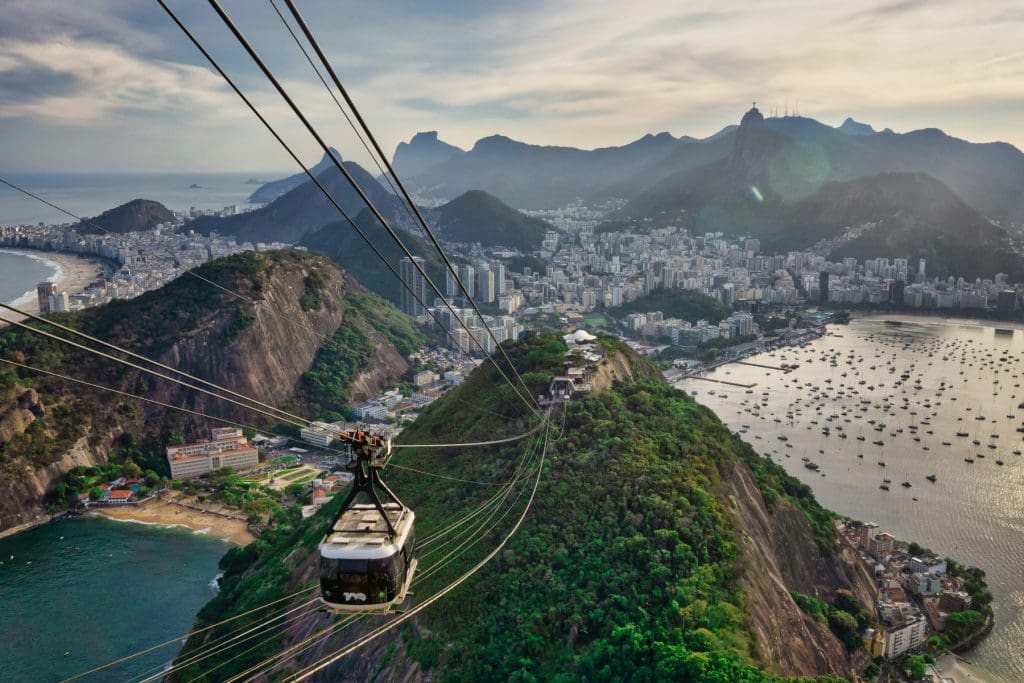Brazil beckons with its endless dance of cultural vibrancy and natural grandeur. From the pulsating streets of Rio de Janeiro to the pristine shores of Bahia, each region offers a unique blend of festivities, flavors, and historical sights.
For the solo traveler, Brazil presents not just an opportunity to explore these riches, but to embark on a journey of self-discovery amidst some of the world’s most captivating landscapes.
Understand Visa Requirements
Before setting foot on Brazilian soil, it’s essential to prepare adequately. Ensuring you understand the visa requirements is your first step toward a smooth trip. The requirements vary depending on where you’re coming from.
To give you an overview, EU and Canadian citizens do not need a visa to enter Brazil. All they need is:
- a valid passport, which should be valid for at least six months beyond the date of expected departure from Brazil, with at least one black page for stamps.
- evidence of sufficient funds, accommodation, and proof of onward or return travel.
Travel agencies have your back, and you can get your visa here without leaving your home. If you’re not from the US, please check with your local agencies.
Cultural Insights and Regional Safety
Brazil is a tapestry woven with the varied threads of its cultural heritage, influenced by indigenous traditions, Portuguese colonial history, African rhythms, and modern urban vibes. Each region offers a distinct flavor of this diversity, shaping not just the local customs and festivals but also the safety dynamics that a solo traveler must navigate.
In southeastern cities like São Paulo and Rio de Janeiro, you’ll find a bustling blend of business districts and vibrant cultural scenes. Here, the cosmopolitan atmosphere is electric, but it’s wise to remain vigilant, especially after dark and in crowded tourist areas where petty theft is common. For those facing legal concerns during their travels, resources such as interpollawfirm.com can offer essential support and guidance.
Conversely, the southern regions like Santa Catarina and Rio Grande do Sul showcase a more European influence with generally lower crime rates, making them appealing to those seeking a tranquil escape.
Safer Cities and Regions
For solo travelers seeking safety without sacrificing the experience of authentic Brazilian culture, certain cities stand out.
Florianópolis and Curitiba in the South are known for their high quality of life and lower crime rates. These cities offer a blend of modern amenities and rich cultural activities in a more controlled environment.
Manaus, in the heart of the Amazon, provides a gateway to the Amazon rainforest. It is relatively safe for tourists, especially within organized tours that explore the natural surroundings.
However, it’s important to approach regions such as Salvador in the Northeast with caution. While rich in Afro-Brazilian culture and legendary for its carnival celebrations, Salvador reports higher instances of violent crime. Similarly, certain parts of Rio de Janeiro, while iconic for their beaches and landmarks, also necessitate heightened awareness due to the risks of theft and mugging.
Regional Threats
When speaking of urban areas, major cities face issues with pickpocketing, especially near tourist landmarks and on public transport. In nightlife settings, drink spiking can occur, making it crucial to keep an eye on your beverages and avoid accepting drinks from strangers.
As for rural and remote areas, these areas pose challenges such as fewer police resources and possible language barriers, which can complicate situations should you need assistance. Though violent crime is less common.
Practical Safety Tips
To ensure a safe trip, start by selecting secure accommodations well-reviewed for their safety measures and located in safer districts. Use online travel forums and review sites to identify the best places to stay.
Familiarize yourself with the layout of the cities you plan to visit. Knowing which neighborhoods are safe and which to avoid can prevent unnecessary risks. Prepare a list of emergency contacts, including local police, medical facilities, and your home country’s embassy, to handle any unforeseen situations.
Transportation Safety
Navigating safely is a key concern in Brazil. To get around safely in Brazilian cities and the countryside keep in mind this:
- Use Reputable Transport Services: Choose well-known taxi companies or trusted ride-sharing apps like Uber, which are safer and more reliable than hailing taxis on the street.
- Avoid Public Transport at Night: In many Brazilian cities, public transport becomes less safe after dark. Plan your travel so that you do not have to rely on buses or trains late at night.
- Rental Cars: If you rent a car, make sure you’re comfortable with local driving styles and legal requirements. Always use GPS and plan your route to avoid getting lost in unfamiliar areas.
Handling Emergencies
Emergencies can occur, no matter how well you prepare. Knowing in advance how to deal with them is crucial:
- Medical Emergencies: Carry health insurance that covers international travel. Know the location of the nearest hospital or clinic, and keep a list of essential health phrases in Portuguese.
- Theft or Loss: Store digital copies of important documents like your passport and visa in a secure online location. If your belongings are stolen, report the incident to the police immediately and contact your embassy if necessary.
Exploring Brazil as a solo traveler offers a unique opportunity to immerse yourself in its vibrant cultures and stunning landscapes. All it takes to safely visit this country is to learn a bit about its culture and how it’s different from yours.




